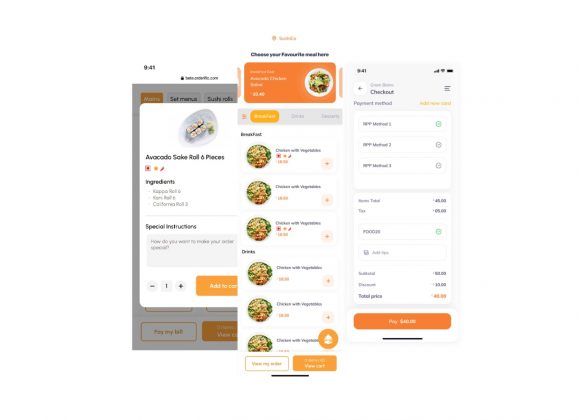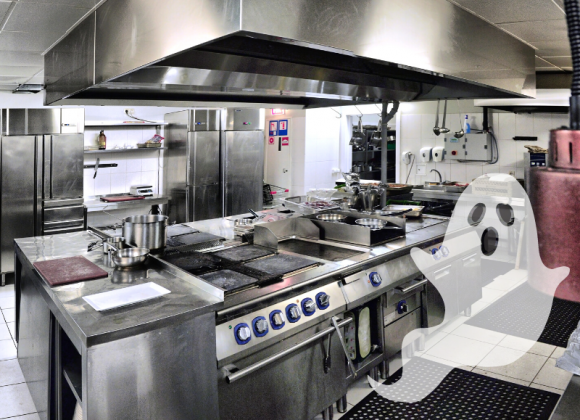
Middle eastern cuisine is known for its nutritional value and taste. The nominal use of red meat, dairy, and refined carbs makes this cuisine healthy for the heart. It helps people to avoid chronic disease and cardiovascular problems. The main components of Mediterranean and middle eastern food are fish, olive oil, fruits and vegetables, and whole grains. This cuisine is one of the most studied diets due to its wide range of health benefits. Middle eastern cuisine includes dishes from different countries like Arabic, Israeli, Iranian, and Turkish. The most popular middle eastern dishes are hummus, falafel, kebabs, and shawarma.
Let’s discuss some of the benefits of eating delicious Middle Eastern food.
Middle eastern food is all about adding fresh and raw ingredients and plenty of vegetables to the dishes. Health-conscious people follow this diet since this cuisine uses baking and grilling instead of frying foods, which makes it healthier than the modern diet.
Here are a few reasons why health-conscious people like this cuisine –
1. Lower Cholesterol and Blood Pressure
Most middle eastern foods primarily consist of items found in nature, such as olive oil, legumes, fruits, vegetables, and unrefined cereal products. Thus, consuming a diet rich in omega-3 fatty acids and good fats helps lower your blood pressure and cholesterol.
Eastern foods include natural sweeteners like honey instead of flavor enhancers like high fructose corn syrup. So, these foods are low in sugar, less processed, and free from artificial ingredients like preservatives.
2. For glowing skin
Healthy fats nourish the body from the inside out, thus reducing inflammation and promoting collagen production. Eating fresh fruits and vegetables, included in the Mediterranean diet, provides you with the necessary vitamins to keep your skin glowing.
3. Fight cancer cells
In order to multiply and spread, cancer cells need an excessive amount of carbohydrates. As middle eastern diets contain carbohydrates that are low in sugar, it keeps you energized while starving out the cancer cells.
Middle eastern foods provide you with antioxidants needed to protect DNA from damage and stop cell mutation. Thus, it reduces the risk of heart disease and stroke and promotes longevity.
4. Prevents Diabetes
Middle eastern food gives you more energy while keeping your insulin levels in control. Keeping your insulin hormone in control helps you to regulate your blood sugar levels. So it is highly beneficial for people with type 2 diabetes.
5. Keeps your Heart Healthy
To maintain a healthy heart, you should eat dishes containing plenty of monounsaturated fats and omega-3. Arabic foods contain sunflower oil and extra-virgin olive oil, which helps to keep your arteries dilated and clear. Thus, it lowers blood pressure and chances of hypertension.
6. Improves Cognitive Function
Cognitive disorders usually occur when a brain doesn’t receive enough dopamine, a chemical that regulates your mood, thought process, and body movements.
Healthy fats in olive oil, veggies and fruits help to fight against the effects of exposure to free radicals, toxicity, and food allergies, which can all lead to the impairment of cognitive functions.
Thus, the middle eastern food diet can help you cure Parkinson’s disease naturally by preserving your memory and promoting healthy brain functions.
7. Weight Loss
Are you searching for a diet that helps you burn fat? Try Arabic foods. Arabic foods contain a lot of healthy fats, carbohydrates that are low in sugar, and high-quality proteins, which will make you feel full and satisfied.
Probiotics are good for your gut health. If you prefer protein over legumes and grains, you should eat seafood and dairy products that contain probiotics.
However, if you are on a plant-based diet, you can have whole grains, which act as appetite suppressants, thus helping you to lose weight.
Confirmation by researchers
Studies have provided strong evidence for the benefits of the Mediterranean diet on cardiovascular health. They promote your overall health and well-being by:
- Reduction in the incidence of cardiovascular outcomes.
- Reduction in risk factors, including obesity and hypertension.
- Lowering rates of incident diabetes.
- Glycaemic control in diabetic patients.
- Increasing longevity.
- Lowering incidence of neurodegenerative disorders.
A survey on middle eastern foods shows that:
- 14.46% of restaurants offer middle eastern food on their menus.
- The fastest rising consumer need for middle eastern food is Snack.
- The dominant diet for the middle east is Vegan.
The survey shows that the following are the most popular middle eastern food prepared and consumed at restaurants:
- Kebab 20.36%
- Pita 18.1%
- Salad 15.03%
- Falafel 11.87%
- Shawarma 8.51%
How Orderific can help you set up a middle eastern cuisine
If you want to sell Mediterranean food or set up a restaurant with Arabic cuisine, here is how Orderific can help you manage it.
Design QR code – Your customers can order online by accessing the digital menu by scanning QR codes. They can also check the nutritional value of each food item on the digital menu.
Build a website – You can create a website for your brand using a wide range of templates available at Orderific. You can customize these templates to cater to your business needs.
Run promotions – You can promote offers on your website, digital menu, or payment page, which can help you attract more customers to your restaurant.
Create a loyalty system – You can create a loyalty program based on the number of orders and points earned per order.
Customize menu – You can curate your digital menu with vibrant pictures, ingredient lists, calorie value, and AI-suggested combos. You can also let your customers customize their dishes by selecting or avoiding some ingredients.
Automate inventory tracking – With Orderific, you can keep track of real-time orders, kitchen inventory, and invoices for kitchen purchases.
Access accurate insights – Orderific offers detailed reports to determine the bestsellers on your menu and the most ordered dishes, combos, or drinks.
Increased upsell opportunity – Orderific automatically suggests food combinations and offers that can go well with the order. Thus, it increases upsell opportunities.
Easy billing – With Orderific POS system, you can generate invoices for kitchen purchases to keep track of stock. It also provides integrated payment gateways with zero transaction fees to accept online payments through multiple channels, including cryptocurrency.
Fast set up – Orderific is easy to set up and work with as it is a web-based service and does not require heavy software downloads. Orderific avoids human errors and delays.
You can connect with our team to discuss the benefits in detail.
Conclusion
Eating middle eastern food is good for health since it includes necessary fruits, vegetables, and meats that help in proper body functioning. It fulfills the consumers’ needs for healthier, sustainable, and nutritious food.
Middle Eastern cuisine is easy to cook and doesn’t take much time. The cooking involves fresh ingredients such as parsley, mint, olive oil, rice, lentils, onions, cucumbers, garlic, tomatoes, pine nuts, cheese, butter, yogurt, and other spices and dairy products.

Dieticians refer people to vegan, vegetarian, plant-based, and gluten-free middle eastern diets to promote a healthier lifestyle and encourage better eating habits.
Middle eastern cuisine includes traditional dishes associated with Syria, Egypt, Iraq, and Saudi Arabia. Most meat dishes are prepared with mutton, lamb, chicken, goat, or camel meat, as pork is prohibited in these countries.
FAQs
What are common Middle Eastern foods?
Common Middle Eastern foods include falafel, hummus, shawarma, kebabs, tabbouleh, and baklava, among others.
What is a famous Middle Eastern dish?
A famous Middle Eastern dish is “Hummus,” a creamy chickpea-based spread or dip often garnished with olive oil, tahini, and herbs.
Why is Middle Eastern food not spicy?
Middle Eastern food typically isn’t very spicy, as it tends to prioritize aromatic spices like cumin, coriander, and sumac, rather than intense heat.
What is the most eaten food in the Middle East?
Rice is one of the most eaten foods in the Middle East, served in various forms like pilaf, biryani, and maqluba.












